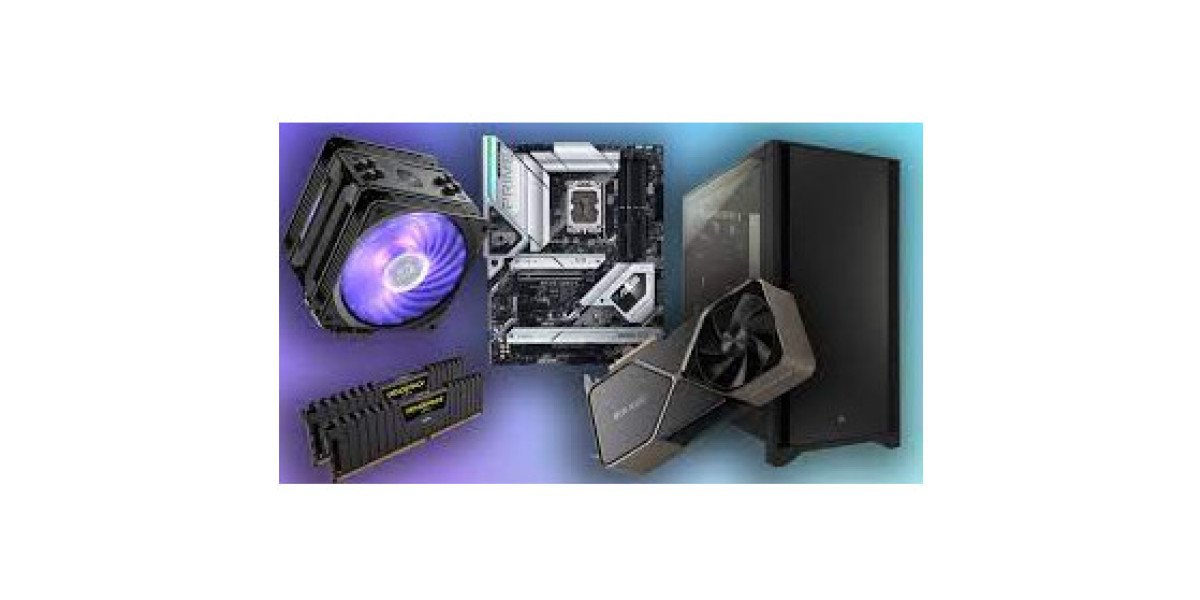When building or upgrading a computer, many people focus on high-profile components like the CPU, GPU, or RAM. However, the power supply unit (PSU) is just as critical, if not more so, to the stability and longevity of your system. A good PSU ensures that all your components receive clean and reliable power, protecting your investment and enhancing performance. This blog will explain the importance of a good PSU, how to choose one, and the impact it has on your computer's overall performance. Fusion hardwares is the best option to buy components of your pc.
What is a Power Supply Unit (PSU)?
Basic Functionality
A PSU converts electrical power from your outlet into a form that your computer components can use. It transforms alternating current (AC) from your wall socket into direct current (DC) required by your computer's internal components.
Key Roles
- Power Conversion: Converts AC to various DC voltages.
- Power Distribution: Supplies power to the motherboard, CPU, GPU, storage drives, and peripherals.
- Voltage Regulation: Ensures consistent and stable voltage levels.
- Protection: Safeguards components against power surges, spikes, and short circuits.
Why a Good PSU is Crucial
Stability and Reliability
A high-quality PSU provides consistent and stable power to your components. Cheap or low-quality PSUs can cause voltage fluctuations, leading to system instability, crashes, and potential damage to components. Reliable power is crucial for maintaining the smooth operation of your computer, especially under heavy loads like gaming or video editing.
Protection for Components
A good PSU includes several protection mechanisms such as over-voltage protection (OVP), under-voltage protection (UVP), over-current protection (OCP), and short-circuit protection (SCP). These features protect your components from electrical damage, which can be costly to repair or replace.
Efficiency
Efficient PSUs convert more of the power from the wall into usable power for your components, wasting less energy as heat. This not only reduces your electricity bill but also minimizes the heat output, leading to a cooler and quieter system. High-efficiency PSUs are often rated 80 Plus Bronze, Silver, Gold, Platinum, or Titanium, with higher ratings indicating better efficiency.
Longevity
Investing in a high-quality PSU can extend the lifespan of your entire system. Stable power delivery reduces wear and tear on components, while efficient operation reduces heat stress, contributing to the overall longevity of your hardware.
Upgradability
A robust PSU provides the headroom needed for future upgrades. As technology advances and you add more powerful components, having a PSU with sufficient wattage and connectors ensures you won’t need to replace it with every upgrade.
How to Choose the Right PSU
Determine Your Power Needs
The first step in choosing a PSU is determining the total power consumption of your system. Use online PSU calculators to estimate your wattage requirements based on your components. It’s recommended to add a 20-30% buffer to this number to ensure reliable performance and accommodate future upgrades.
Consider Efficiency Ratings
Look for PSUs with 80 Plus certification, which guarantees a certain level of efficiency at different loads. Higher certifications (Gold, Platinum, Titanium) indicate better efficiency, which translates to lower energy consumption and heat output.
Check Compatibility
Ensure the PSU is compatible with your case (form factor) and has the necessary connectors for your components. Common form factors include ATX, SFX, and TFX, with ATX being the most common for standard desktops.
Look for Quality Brands
Choose PSUs from reputable manufacturers known for their reliability and quality. Brands like Corsair, Seasonic, EVGA, and Cooler Master are well-regarded in the industry. Reading reviews and checking professional benchmarks can also help in making an informed decision.
Modular vs. Non-Modular
- Non-Modular PSUs: Come with all cables permanently attached. While cheaper, they can result in clutter and restricted airflow.
- Semi-Modular PSUs: Have essential cables attached, with optional ones being detachable.
- Fully Modular PSUs: Allow you to detach all cables, offering the best cable management and airflow but at a higher cost.
Wattage
Choose a PSU that provides sufficient wattage for your system’s needs. It’s better to have a PSU with more wattage than you currently need to accommodate future upgrades. Typical recommendations are:
- General Use: 400-600W
- Gaming: 600-800W
- High-End Systems and Overclocking: 800W and above
Additional Features
- Fan Noise: High-quality PSUs have efficient, quiet cooling systems. Some even offer fanless modes at low loads.
- Warranty: Longer warranties (5-10 years) are often a sign of a manufacturer’s confidence in their product’s durability and reliability.
Impact of a Good PSU on Your Computer
Enhanced Performance
A reliable PSU provides stable power, ensuring that components like the CPU and GPU can perform at their best. Power fluctuations from a poor-quality PSU can throttle performance, causing stuttering and crashes.
Improved System Lifespan
Consistent power delivery minimizes the risk of damage to sensitive components, extending the life of your entire system. Over time, this can save you money on repairs and replacements.
Better Overclocking Potential
Overclocking requires additional power. A high-quality PSU with sufficient headroom can provide the stable power needed for overclocking your CPU and GPU, allowing for improved performance.
Energy Efficiency
An efficient PSU reduces energy consumption, leading to lower electricity bills and a smaller environmental footprint. This is particularly important for systems that run 24/7, such as servers or home media centers.
Noise Reduction
Quality PSUs often feature quieter fans and better heat dissipation, resulting in a quieter overall system. This is beneficial for creating a comfortable and distraction-free work or gaming environment.
Conclusion
The power supply unit (PSU) is a critical component in any computer build, directly impacting stability, performance, and longevity. Investing in a high-quality PSU ensures that your system receives reliable and efficient power, protecting your components and providing a solid foundation for future upgrades. When choosing a PSU, consider your power needs, efficiency ratings, brand reputation, and additional features to make an informed decision. By prioritizing a good PSU, you can enhance your computing experience and safeguard your hardware investment for years to come.








